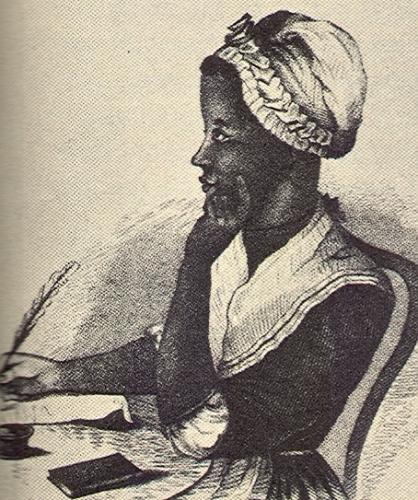 |
LITR 4231 Early American
Literature Sample Research Posts 2014 (research post assignment) Research Post 2 |
 |
Carmen Rosella Halbison
To Leave by Force; To Come by Force
Based on my research and the opinion of several scholars, it really is unclear
if Africans were living in Jamestown before 1619. It was not until 1640 that the
courts ordered an African to serve as a slave. According to scholar Thomas J.
Davis, a Professor of History at Arizona State University, Africans were
probably in the Virginia colony before 1619. But, upon their arrival to
Jamestown they were put to task immediately to cut trees, fetch water, and plant
crops - all of what was necessary to cultivating a settlement. Peter Wood,
Professor of History at Duke University opinion was that he was unsure if these
Africans were captured off of a ship or if they had been transported directly,
but he was able to conclude that the first Africans that came to Jamestown by
way of being a part of the transatlantic system of slavery.
Professor Wood was able to corroborate that there had been many Africans in
North America before 1619, traveling with the Spanish explorers and throughout
the southeast and southwest.
Norrece T. Jones, Jr., Associate Professor of History and African American
Studies at the Virginia Commonwealth University, commented that the formal
structure of slavery in 1619 demonstrated that there was a distinct difference
between indentured servants and slaves. Indentured servants had a time constraint
on how long they would serve, but a dependent laborer was merely a servant
without a time limit. Yet according to Betty Wood, Professor of History at
Oxford University, she summarized according to the same subject of slaves
arriving in Jamestown, that in 1619 the Africans that was brought to Virginia
were immediately enslaved by the English. However, later during the 1630s and
1640s there were Africans in Virginia that were treated as the English servants
were treated and freed after serving a set term of years.
It makes me wonder if there is any accurate account of the first Africans
arriving at Jamestown, since the information that I was able to get only is
recounts of what someone else has stated. Additionally, the information is so
limited and every professor that had anything to say, was all stating the same
information just in their own words. But no matter, because it was only a matter
of time that the Africans came to understand that their exchange with the
colonist was not that of trading, but of forced servitude.
References
"Africans Arrive in Virginia, 1619." Gale Encyclopedia of U.S. Economic
History. 1999. Retrieved March 26, 2014 from Encyclopedia.com:
http://www.encyclopedia.com/doc/1G2-3406400017.html
“Africans in American.” Retrieved April 18, 2014 from
http://www.pbs.org/wgbh/aia/part1/1p263.html
Becker, E. (1999). Chronology on the
History of Slavery. (1999). Retrieved March 26, 2014 from
http://innercity.org/holt/slavechron.html
Ojibwa. (January 31, 2010). One who came back. Native American Netroots.
Retrieved from
http://nativeamericannetroots.net/diary/tag/Opechancanough
“Our ancestors in Jamestown, Virginia.” (n.d.). Genealogical Gleanings.
Retrieved March 26, 2014 from
http://genealogical-gleanings.com/Jamestown.htm
Wood, P. (n.d.). Africans in America: The terrible transformation. PBS Online.
Retrieved March 26, 2014 from
www.pbs.org/wgbh/aia
|
|
|
|

